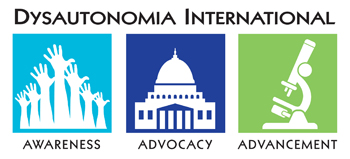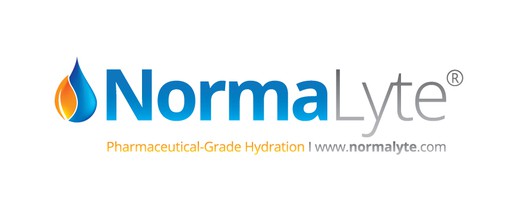Amanda Ross is a senior at Johns Hopkins University. She is planning to attend medical school after graduation. She is also a member of Dysautonomia International's Patient Advisory Board. Here is her POTS story:
One Saturday during my senior year of High School, I woke up with a stomach virus that never went away. It continued for years while more symptoms piled on. During that time, I was tested for everything in the book but when test after test showed nothing wrong, many people told me, "maybe you're depressed," or, "I believe you're doing this for attention."
Being sick in college affected me so much mentally, spiritually, emotionally and obviously physically. It robbed me of a normal social life, threw me into depression, and made me think I was crazy. Being chronically sick also ruined my dream of saving the world's water supply by being an Environmental Engineer. I couldn't get through calculus with all of the brain fog I was experiencing. For a few semesters, I couldn't even attend most of my classes.
However, being sick sparked an entirely new dream! Since I was sick when I entered to college, I signed up for General Biology and Intro to Physiological Psychology my first semester, just for fun. I was determined to figure out what was wrong with me and use all the resources I had at my disposal to do so. I eventually switched my major to Behavioral Biology so I could fit more Biology, Neuroscience, and Public Health classes into my schedule. As a Johns Hopkins student, I also have access to one of the best medical libraries in the world and I used it to read all the journal articles that sparked my interest.
January of my sophomore year of college I met a girl named Megan in a bible study held by my Christian Fellowship. My doctor noticed I had low blood pressure and thought that was making me dizzy, even though he couldn't explain any of my other symptoms, so he had me taking salt tablets. I had just eaten dinner, so I pulled out my bottle of Thermotabs when my friend Megan screamed, "you take salt tablets too?" After bible study, I talked to Megan and she told me all about this thing called POTS that she had. Our stories and symptoms sounded too similar, so that night I went home and sent an email to my doctor asking, "Do I have POTS?"
By August that year, I finally convinced my primary care physician to send me to a cardiologist to get a tilt table test done which finally confirmed my POTS diagnosis. I was also diagnosed with Ehlers Danlos Syndrome - Type III. That's where my journey began. I soon realized that not only was there a lack of consensus on the treatment for my conditions, but there were also very few doctors who treated them. In the state of Maryland there are only two POTS specialists and they are so overwhelmed by the number of patients that I couldn't get in to see either one. Thankfully, my primary care physician stepped up. He consulted with his colleague (Dr. Rowe at Johns Hopkins) and we both did our research. Over the next few months my primary care physician kept seeing me on a weekly basis as we debated and tried various medications, infusions, supplements, physical therapy and lifestyle adaptations. In a few months, we were able to better manage my POTS, stomach problems, EDS stuff, daily headaches, etc.
In February 2012, I woke up one day and felt "almost normal." It was amazing!
In March, I met with my academic advisor. She asked me what I was thinking about doing after graduation. I stared at her blankly. I told her I liked research, so she told me to get involved in some "wet bench work," basically working with cells in a lab, because I had already had some clinical research experience. The idea disgusted me. I went home and thought about my future. The world was open to me. Maybe I was only interested in biology and medicine because I was sick, and now that I was better I could do whatever I wanted. As soon as the thought passed my mind, I started feeling nauseous.
I visited a POTS facebook group that I hadn?t visited in months since I no longer needed the help or support. I noticed that most of the people who I used to reach out to were still there looking for answers. I found it unfair and ironic that I had gotten so much better so quickly and others who had gotten sick before me were left behind. The only reason I got better is because I was extremely lucky. I had a doctor that was willing to work with me, advice from one of the few POTS experts in the country, an amazing PT, and the medicines I chose actually worked for me.
It didn't seem right that I could get better and leave others behind. That day, I decided that I was going to use my knowledge and experience to help others still suffering with POTS and related conditions any way I could. I emailed Dr. Stewart, a POTS specialist at New York Medical College, and asked him if he could use a "very motivated summer research assistant" to which he replied yes!
I'm currently working in Dr. Stewart's lab helping out with his clinical research, analyzing data from his studies, and learning more about POTS everyday. I'm also studying for the MCAT. I'm planning to apply to medical school next year.
My dream is that everyone with POTS can have a better diagnosis and treatment experience than I did. I think patients are a completely underutilized resource in medicine. I would have never been diagnosed if I hadn't met my friend Megan and advocated for myself. I also want to educate physicians about POTS, so that even if there are only a handful of POTS experts in the country, there will be thousands of good primary care physicians, cardiologists, neurologists and others who understand POTS well and can diagnose and treat it. I also hope to continue clinical research in medical school and during my career to understand the various types of POTS, co-morbidities, mechanisms, and treatments.
| | |



